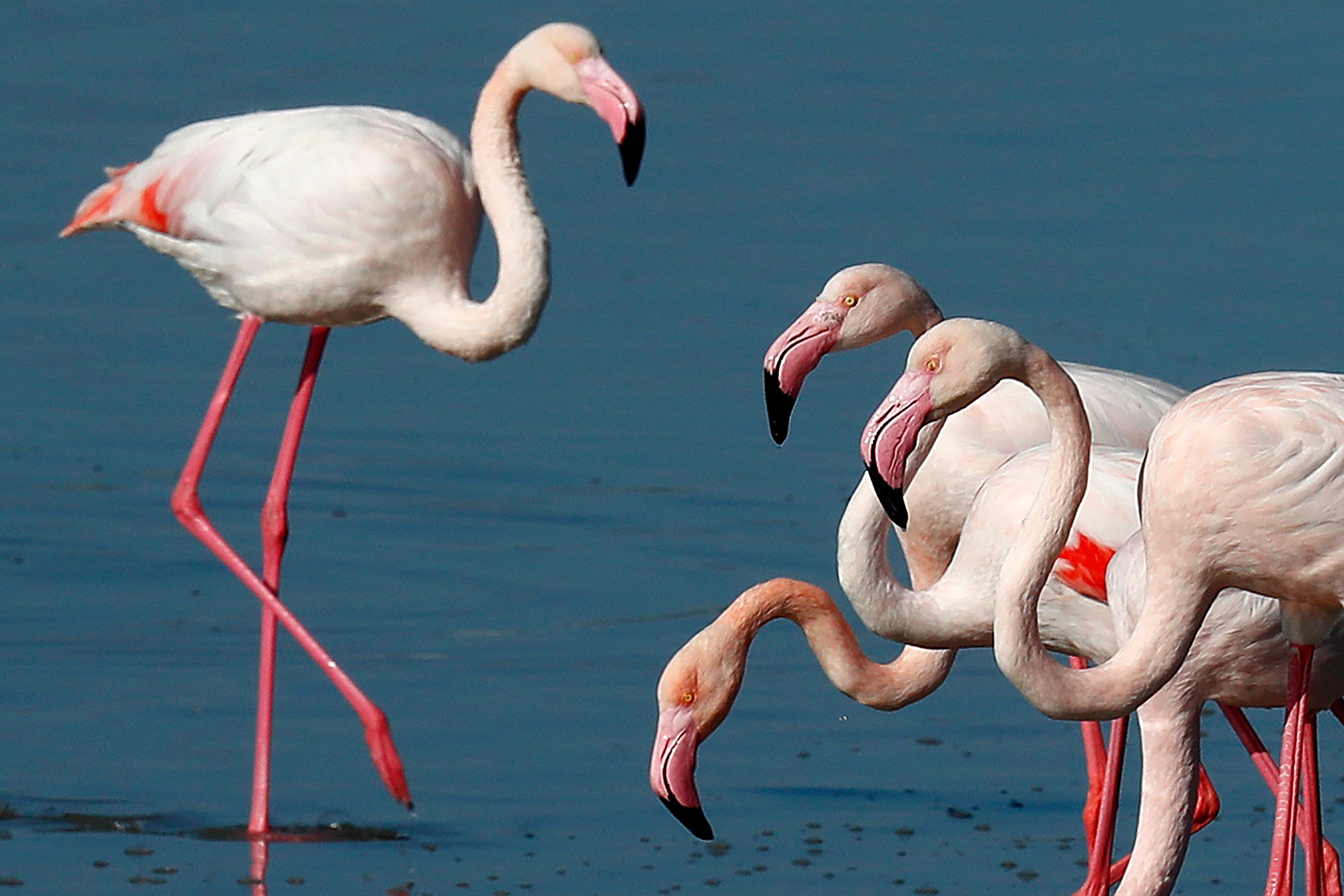Cyprus activists: Hunters' lead pellets threaten flamingos
Conservationists in Cyprus are urging authorities to ban hunting along the southern edge of a salt lake wetlands amid concerns that migrating flamingos could ingest lethal quantities of lead shotgun pellets

Your support helps us to tell the story
From reproductive rights to climate change to Big Tech, The Independent is on the ground when the story is developing. Whether it's investigating the financials of Elon Musk's pro-Trump PAC or producing our latest documentary, 'The A Word', which shines a light on the American women fighting for reproductive rights, we know how important it is to parse out the facts from the messaging.
At such a critical moment in US history, we need reporters on the ground. Your donation allows us to keep sending journalists to speak to both sides of the story.
The Independent is trusted by Americans across the entire political spectrum. And unlike many other quality news outlets, we choose not to lock Americans out of our reporting and analysis with paywalls. We believe quality journalism should be available to everyone, paid for by those who can afford it.
Your support makes all the difference.Conservationists in Cyprus are urging authorities to expand a hunting ban throughout a coastal salt lake network amid concerns that migrating flamingos could potentially swallow lethal quantities of lead shotgun pellets.
Martin Hellicar, director of Birdlife Cyprus, said flamingos are at risk of ingesting the tiny pellets lying on the lakebed as they feed. Like other birds, flamingos swallow small pebbles to aid digestion but can’t distinguish between pebbles and the lead pellets.
“Last year, we had tens of losses of flamingos,” Hellicar said.
Cyprus is a key stop on the migration path for many types of birds flying from Africa to Europe. The Larnaca Salt Lake, a wetlands network of four lakes, typically welcomes as many as 15,000 flamingos from colder climates to the southern coast of the island nation in the eastern Mediterranean. They stay through the winter and leave in March. Other water fowl frequenting the lake include ducks, waders and seagulls.
Hunting is banned around most of the salt lake, but hunters are still allowed to shoot ducks in the network’s southern tip.
The government's Game and Fauna Service says in the first two months of last year, 96 flamingos were found dead in the Larnaca Salt Lake wetlands as a result of lead poisoning. Cyprus Veterinary Services official Panayiotis Constantinou, who has conducted autopsies on flamingos, said lead from the pellets poisoned the birds.
The high number of deaths is mainly attributed to heavy winter rain two years ago that stirred up the lake sediment and dislodged embedded lead shot.
A sport shooting range near the lake's northern tip closed nearly 18 years ago and authorities organized a clean-up of lead pellets in the lakebed there.
But Hellicar says the clean-up was apparently incomplete. A European Union-funded study is underway to identify where significant amounts of lead pellets remain so they can be removed. Preliminary results of the study showed “very high” lead levels in the wetland's southern tip and continued duck hunting there could compound the problem, Hellicar said.
“The problem is pronounced," he said. "The danger is real for the flamingos and other birds that use the area.”
Cyprus Hunting Federation official Alexandros Loizides disagrees, saying that hunting in a 200-meter northern swath is not a problem due to the limited number of hunters. He said he’s unaware of any flamingo deaths in the area and faults pesticide and fertilizer runoff from nearby farms for creating any pollution problems hurting wildlife.
“I think the effect of hunting there is very small on the specific part of the lake,” said Loizides. “It’d be a shame for hunters to lose the only area where hunting is permitted near wetlands.”
A ban on the use of lead pellets near wetlands has been in force in Cyprus for several years. A similar, EU-wide ban took effect last month but conservationists believe the laws are not being enforced enough.
Pantelis Hadjiyeros, head of the Game and Fauna Service, said it’s less important to ban hunting in the area than to convince hunters to stop using shells with lead pellets.
“It should be drummed into people that the use of lead pellets is prohibited near wetlands and that only steel pellets are permitted,” Hadjiyeros told The Associated Press.